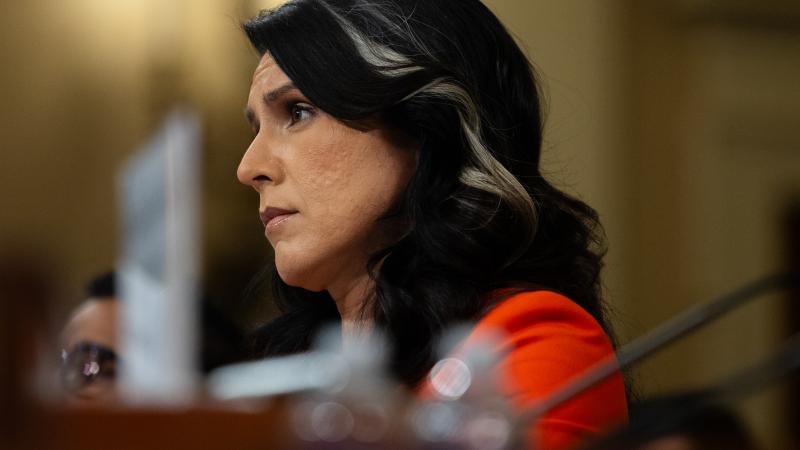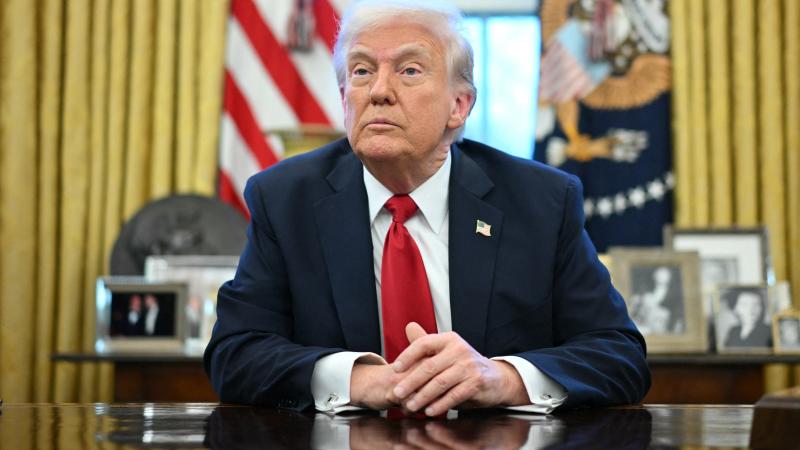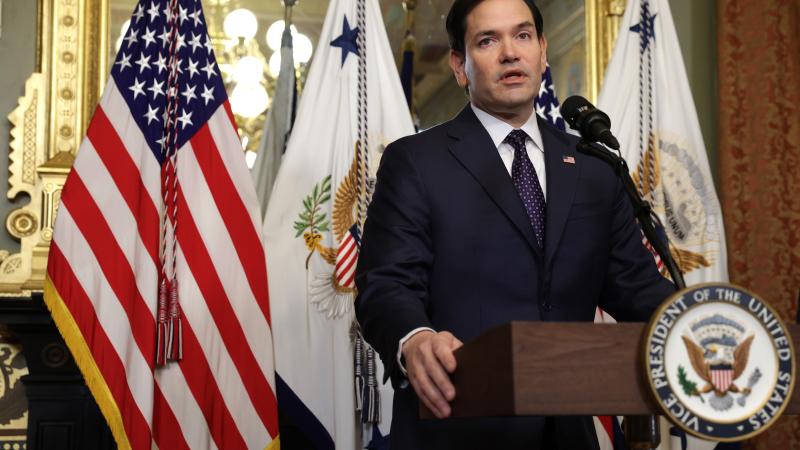Debating preemptive bombing: Internal admin divides go public as Iran negotiations progress
Recent news reports have suggested that National Security Advisor Mike Waltz and Secretary of State Marco Rubio are leading the hawkish camp as Secretary of Defense Pete Hegseth and Vice President JD Vance lead the realists.
Internal divisions within the Trump administration over strategy to address the Iranian nuclear program have begun to creep into the public discourse as foreign policy realists advance negotiations to the consternation of hawks who favor military action.
Recent news reports have suggested that National Security Advisor Mike Waltz and Secretary of State Marco Rubio are leading the hawkish camp as Secretary of Defense Pete Hegseth and Vice President JD Vance lead the realists. But such disputes have largely remained behind closed doors, only to leak through in often anonymously sourced reporting. Things have taken a public turn, however, with President Donald Trump’s appointment of Mark Levin to the Homeland Security Advisory Council.
Levin, primarily known as a conservative media commentator, the stalwart Iran hawk and Israel advocate, has vocally criticized the Trump administration’s pursuit of negotiations with Iran and has longstanding disagreements with Director of National Intelligence Tulsi Gabbard, some of which have resurfaced amid the ongoing negotiations.
Further negotiations ahead
Holy Saturday brought a fortuitous development for those talks as Iran’s Foreign Minister Abbas Araghchi and Trump Special Envoy Steve Witkoff met in Rome and agreed to enter further negotiations. Oman Foreign Minister Badr bin Hamad Al Busaidi moderated the talks.
“It is only in dialogue and clear communication that we will be able to achieve a mutually credible agreement and understanding for the benefit of all concerned regionally and internationally,” the Omani Foreign Ministry said in a statement. “It is also agreed that the next round will take place in Muscat in the next few days.”
The details of a potential deal remain hazy at present, though the Omanis signalled the end goal was the elimination of sanctions on Tehran and, of course, the prevention of the regime’s development of nuclear weapons.
Levin, however, has warned that pursuing such talks would constitute a mistake, saying “[t]he isolationist-appeasers are pushing a monumental blunder,” he said.
Out in public
Officially, the Trump administration’s senior officials are behind the president’s efforts to secure a diplomatic resolution to the nuclear issue and even the Iran hawks are toeing the line on the matter in the public eye.
“What President Trump's been crystal clear that Iran can never have a nuclear weapon, that all options are on the table, but he absolutely prefers making a deal, and we're getting positive indications in that regard,” national security advisor Mike Waltz said in a Tuesday interview on Just the News, No Noise. “We're here in full support of his vision. He knows how to use leverage appropriately, and is driving that process,” he added. “So, that's that's the task before us that he has said as commander in chief, and I got to tell you, we're going to make a heck of a lot more progress than you saw in prior administrations.”
Waltz further opined that the talks had led to greater progress than prior administrations previously accomplished, but cautioned that any deal would not include provisions for the expiration of nuclear oversight. Rubio, for his part, echoed Waltz’s sentiments on Wednesday, saying “we do not want to see war. This is not a president who campaigned on starting new wars.”
“The Iranians have shown a willingness to talk. We’re gonna talk to them,” Rubio asserted. "If Iran wants a civil nuclear program, they can have one just like many other countries in the world have one, meaning they can import enriched material.”
Behind closed doors
The negotiations approach does appear to have its fair share of private doubters. Last week, The New York Times gave a glimpse of the apparent internal division on Iran strategy with an article titled “Trump Waved Off Israeli Strike After Divisions Emerged in His Administration”.
Whereas the article painted Waltz as cautiously open to the Israeli strike, it positioned Vance, Hegseth, and Gabbard as key opponents to such a move. The article painted the divide as far from sharp, highlighting that even Waltz was skeptical of the viability of the Israeli plan, despite his greater interest in such a strike.
The Times article relied primarily on unnamed sources, such as “administration officials and others briefed on the discussions,” though Trump himself has confirmed that military and diplomatic options remain on the table.
Predicating Cabinet opposition to a proposed Israeli strike on Iran was Gabbard’s presentation of an intelligence assessment suggesting that a buildup of American military equipment could lead to a larger conflict across the region that would be disadvantageous to the U.S., the Times reported.
Iran currently supports several proxy groups across the Middle East, including the Lebanon-based Hezbollah, Hamas in Gaza, and the Houthis in Yemen. Several component militias of the Iraqi Popular Mobilization Forces (PMF) also maintain close links with Tehran. While each of these groups has exchanged fire with U.S. forces in recent years, few clashes have sparked substantial fighting, with the notable exception of the ongoing American strikes against the Houthis, who have effectively shut down Red Sea shipping by targeting commercial vessels in the critical waterway.
Levin has specifically taken aim at the intelligence community under Gabbard’s leadership, suggesting that its cautious assessments and relatively dovish view of Iran and its nuclear ambitions were naive.
“Red flags are everywhere. Can't say we've not been warned,” he posted, along with a link to an American Greatness article demanding that Gabbard reverse “stupid” U.S. intelligence on the Iranian nuclear program.
The American Greatness article was written by former National Security Council chief of staff Fred Fleitz and excoriated the 2025 Annual Threat Assessment for stating “[w]e continue to assess Iran is not building a nuclear weapon and that [Iranian Supreme Leader] Khamenei has not reauthorized the nuclear weapons program he suspended in 2003.”
Enrichment vs. Imports
At the core of the debate over Iranian progress toward a nuclear weapon is the issue of uranium enrichment. Rubio made clear that the United States does not object to the creation of an Iranian civil nuclear program focused on power generation. He did, however, highlight that Iran’s pursuit of domestic enrichment of nuclear materials would make it the only country in the world with enrichment capabilities and no weapons program. He suggested that such a situation would not last.
Fleitz’s key concern is the apparent increase in Iran’s ability to speedily enrich uranium to weapons-grade quality, saying “Iran can now enrich enough uranium to fuel one nuclear weapon in less than a week and 14 in about four months.” He cited a report from the Institute for Science and Technology to support that assertion.
Uranium enrichment and the delivery system represent the primary components of the development of nuclear weapons. At this stage, Iran hawks appear convinced that Tehran retaining the capacity to enrich uranium would render its development of a nuclear arsenal inevitable.
But while some seem more willing to at least entertain the diplomatic approach, the most aggressive among them expect military action to come as a matter of course.
“In the end, Israel will need to take out those Iranian nuclear sites regardless of who does or does not support them and regardless of negotiations,” Levin posted Tuesday.
Israel has taken that step before: In 1981, a preemptive airstrike was conducted by the Israeli Air Force on June 7, 1981, which destroyed an unfinished Iraqi nuclear reactor located 11 miles southeast of Baghdad, Iraq.















